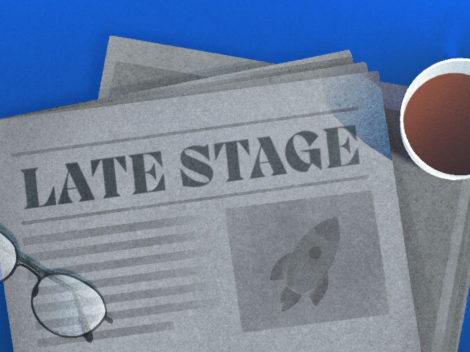Everything is getting bigger in Texas, unless you’re talking about startups raising new funds. In Q2 2019, Texas barely surpassed Q1 2019 totals, and the state’s venture market underperformed year-over-year.
Subscribe to the Crunchbase Daily
Funding results in Texas also reflected a common result: Austin nabbed the most investment dollars while Dallas and Houston trailed behind. But this time, and this happens every so often, Houston edged Dallas in total dollars raised.
Those are the broad takeaways for a state that contains one of the most business-friendly and venture-active startup ecosystems in the country. And the data is in to tell us more.
Same Dollars, New Funds
Overall, Texas dollar values were down at $817.9 million (10 percent year-over-year) compared to $908.3 million in Q2 2018 and only slightly higher than the $808.9 million brought in by Texas startups in Q1 2019.

Going local, venture capitalists pumped $411.11 million into Austin startups across 36 deals in the second quarter—a 19 percent drop (in dollars) compared to the $507.3 million raised over 38 deals in the year’s first quarter, according to Crunchbase data. Austin’s largest known deal in the quarter was digital health startup EverlyWell’s $50 million raise. Meanwhile, Austin-based FloSports, a direct-to-consumer streamer of live digital sports and original content, raised a $47 million Series C. While those are respectable rounds, it’s an overall disappointing result when you considered the city started off the year with a very strong January.
Houston’s totals were closer to Austin’s figures than normal, raising $251 million in 13 deals in the same time period. The company that brought the most venture funds in Houston during the second quarter was a biotech startup, AlloVir, which raised $120 million in Series B funding, as reported by Crunchbase News’s Jason Rowley.
After a strong first quarter, Dallas startups brought in $148.5 million across 15 transactions. The company that raised the most in Dallas during the second quarter was Plano-based fintech company Alkami Technology, which closed on a $55 million Series E round. Just one known investment was made in San Antonio during the first quarter: angel money, totaling $25,000, was put in FloatMe.

However, the state is not down in the dumps.
Texas has seen a number of new funds announced this year, including LiveOak’s close of a $105 million fund and the formation of Ecliptic Capital, a new $125 million early-stage VC firm. Santé Ventures, an Austin-based healthcare and life science-focused venture firm, also raised $250 million in its third fund. And two Austin-based venture capital firms, ATX Venture Partners and Quake Capital, are in the process of each raising $100 million funds while Houston-based Mercury Fund raised $82 million for its fourth fund, Mercury Fund Ventures IV, for which it aims to raise a total of $125 million. And even in a funding environment that’s flattening, venture capitalists in the area claim there is plenty of work to do.
Charlie Plauche, a partner at Austin-based early-stage firm S3 Ventures, said the quarter marked the firm’s busiest ever period when it came to new investments. S3 led a $10 million Series A for Atmosphere, an $8 million Series A for Liveoak Technologies, and a $5.5 million Series A for Interplay Learning. The firm also participated in a $8 million Series A for Alleviant, which was founded by Adam Berman. Berman was previously co-founder and CEO of S3 portfolio company TVA Medical, which exited last year. All of the above companies are based in Austin except Alleviant, which is in Houston.
“This year is off to a record start with funding, and I think we will continue to see robust funding in Texas, and Austin specifically,” he wrote via email. “Texas is home to the largest number of active venture firms the state has seen in 10+ years.”
Plauche notes the trend of more coastal firms being active investors in the Lone Star State.
“I field calls and emails weekly from coastal firms looking to invest locally and our recent round with Interplay Learning had participation from four coastal firms,” he added. “I believe this is a trend we will continue to see.”
Besides Mercury Fund, Houston notably lacks venture firms. But it is home to Station Houston, which operates a co-working space and serves as a technology hub for the city. I talked with Gaby Rowe, who recently took over as CEO of the recently-turned nonprofit organization last year. She echoed Plauche’s observations.
“What we’re seeing is that there really is that momentum we’ve been hoping, planning, and building for for a couple of years now,” Rowe said. “We’re really starting to feel it.”
About six months ago, she said, Station Houston started getting more inquiries from VCs from both coasts asking about the companies located in the city and their deal potential.
To accommodate this influx of money seeking returns, Station Houston developed a plan for building a VC studio—a landing pad for out-of-town and out-of-state VCs—for those who wanted access to Houston startups “in a curated and centralized way.”
The organization started cautiously. Its initial plan was to build relationships with 9 VCs, but the initiative was like “opening the floodgates,” according to Rowe.
About six weeks ago, Station Houston capped the program to 21 VCs so it could focus on building the rest of the programming, but due to demand, it expanded the program to even more investors. At the time of writing, 31 VCs had joined the program.
“In the past four months, we already know of at least 10 term sheets that have come out of those conversations,” Rowe told Crunchbase News. Station Houston currently has 210 companies in active incubation and 750 members.
While Texas continues to attract capital from outside the coasts, on the ground, it still feels like the state is going through some growing pains. Last week, we published a list of the most active investors in the state, and 10 out of 12 were based here. It’ll be interesting to take a look a year from now and see if that changes.
Featured Image: Dom Guzman

Stay up to date with recent funding rounds, acquisitions, and more with the Crunchbase Daily.



![Illustration of stopwatch - AI [Dom Guzman]](https://news.crunchbase.com/wp-content/uploads/Halftime-AI-1-470x352.jpg)




![Illustration of stopwatch - AI [Dom Guzman]](https://news.crunchbase.com/wp-content/uploads/Halftime-AI-1-300x168.jpg)


67.1K Followers